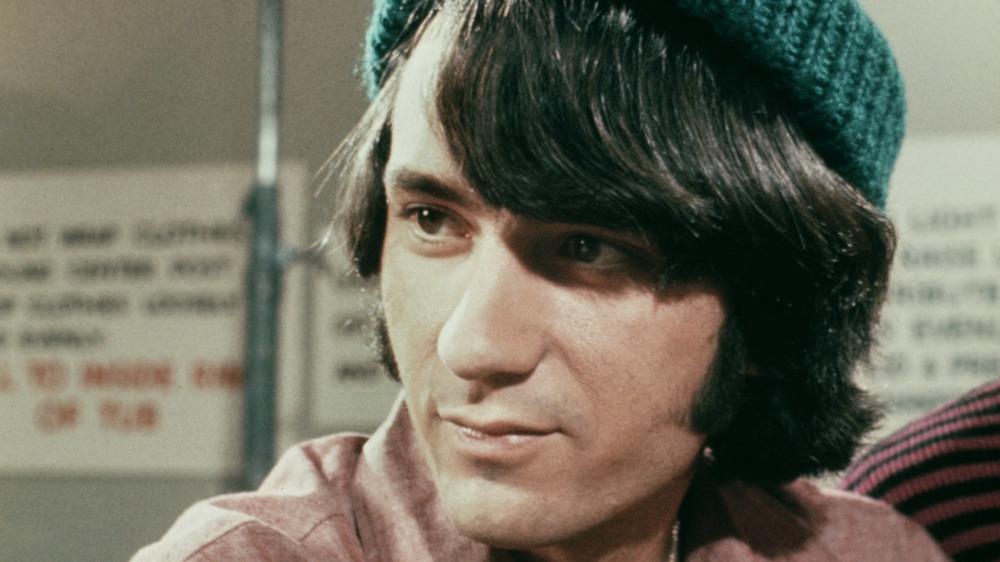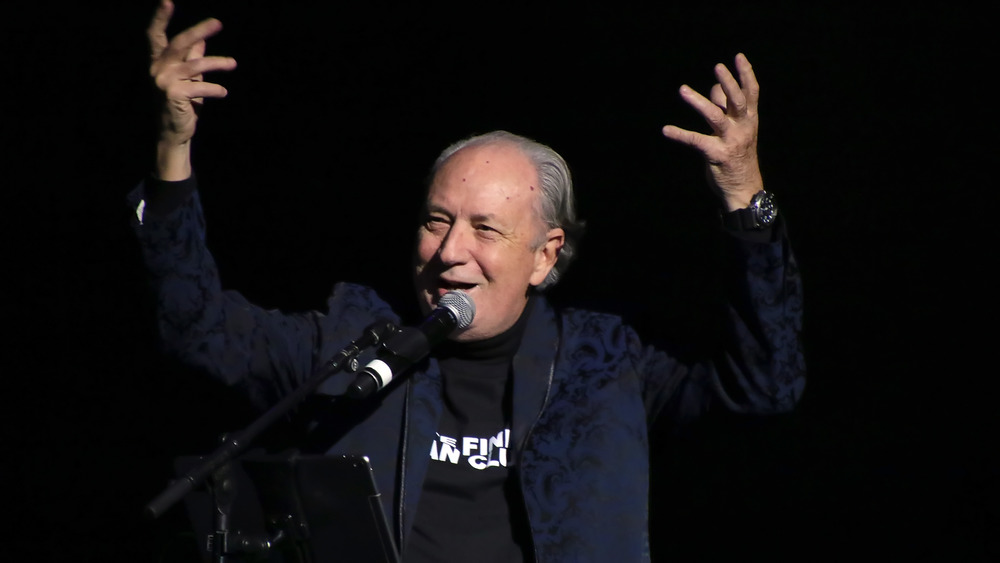The Tragic Downfall Of The Monkees' Michael Nesmith
When bands break up, members are free to branch out and establish their own identities and projects. Unfortunately, it's often the case that this sudden freedom proves difficult for people who are used to fitting into a mold. Suddenly being responsible for making their own decisions and solving their own problems often leads to disaster. Members of the Pre-Fab Four, the sitcom-centric Monkees, were no exception.
By the time the Monkees officially broke up in 1970, Michael Nesmith had been gone for a year and had already released his first solo album, the all-instrumental The Wichita Train Whistle Sings, which All Music said "received very little attention except from the inevitably confused Monkees fans."
In his 2017 memoir Infinite Tuesday, as discussed and quoted in People magazine, Nesmith described how the end of the Monkees meant he was "left to fly on [his] own" and "things of the most mundane type took horrifying turns." Among those "mundane things": The IRS came looking for the back taxes he'd been ignoring for years, seizing his property and leaving him "essentially penniless." Things went from bad to worse when his post-Monkees records continued to be largely ignored, his marriage to his college sweetheart, Phyllis, broke up, he had an affair with the wife of a friend, and he sunk what little money he had left into building a country music studio that ultimately went nowhere. "Every seam in the sack of my life started to split and all the contents started leaking out."
Did Michael Nesmith invent music videos?
He attempted to sort himself out via experimenting with LSD and "following a series of gurus," which didn't result in any particular breakthroughs. Eventually, in 1979, Nesmith took inspiration from the music and comedy format of the Monkees' television show and made a promotional short film for his song "Rio." He enjoyed the process of making a "music video" and, per the New York Post, decided "There should be a broadcast component for the music video just like there is for records." He put together some examples, introduced the idea of "VJs" who would serve the same purpose as radio DJs, and called it Popclips. Warner Bros. executive John Lack bought the concept from him and later partnered with American Express to create an entire channel devoted to music videos. MTV premiered on August 1, 1981.
Nesmith was offered the role of MTV production head, but turned it down. By then he didn't need the money, as his mother, inventor of Liquid Paper ("white out"), left him a multi-million inheritance when she died in 1980. Over the next several decades, he wrote novels and produced movies, including the 1984 cult classic Repo Man.
A mysterious illness struck in 2007, leaving him unable to walk. He consulted numerous physicians, to no discernible benefit. Eventually Nesmith recovered, which he credited to his Christian Science faith. As People quotes him: "I felt confident it wasn't supernatural in any sense, just natural good taking care of her own..."

